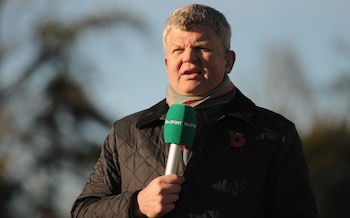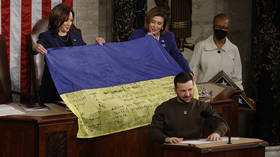COAMO, Puerto Rico (AP) — Towns in central and southern Puerto Rico are struggling to emerge from a prolonged power outage that forced authorities in the U.S. territory to activate an emergency response team on Monday and request food distribution to those in need.
The outage occurred more than a week ago, leaving tens of thousands of clients without power after a transformer that twice exceeded its useful life collapsed.
Officials with Luma Energy, which operates transmission and distribution for Puerto Rico’s power authority, have said repairs could take more than a month. The announcement sparked widespread anger, especially since the outage has disrupted water service and comes amid daily excessive heat warnings, with the Atlantic hurricane season just starting.
Some politicians are demanding that Gov. Pedro Pierluisi declare a state of emergency.
“The people of Santa Isabel, Coamo and Aibonito cannot endure another day without electricity,” Puerto Rico Sen. Héctor Santiago Torres said on Monday, referring to towns in the Caribbean island’s central and southern regions. “This situation is unsustainable.”
More than 40% of Puerto Rico’s 3.2 million people live below the poverty level, and not everyone can afford generators or replace costly electric appliances damaged by the outages.
“My fridge broke because of the voltage issues, so I had to throw away all the spoiled food,” said Carmen Franco, 68, as she spoke over the roar of generators in the southern town of Coamo, where she joined dozens awaiting a free lunch on Saturday.
Officials had transformed a music school into a huge kitchen as people cooked rice and chicken, delivering hundreds of lunches to hard-to-reach areas in the town, where nearly a fifth of the population is over the age of 65.
“Clearly, we are not prepared for this,” Coamo Mayor Juan Carlos García Padilla said of the ongoing outages. He told The Associated Press that residents already are struggling with a high cost of living. “They don’t have anything left over to save.”
One resident, Carlos Ávila, 51, said he struggled to reach his cardiologist over the weekend to get a prescription sent to the pharmacy because phone lines were down as a result of the power outages: “I’ve been waiting over a week to get my blood pressure prescription refilled.”
Chronic power outages have plagued Puerto Rico ever since Hurricane María struck in September 2017 as a Category 4 storm and razed the island’s already fragile grid. But the most recent outage has persisted longer than most.
Puerto Rico relies on power plants that use coal, petroleum and natural gas to generate about 97% of the island’s electricity, and efforts to switch to renewable energy are slow-going.
In addition, a federal control board that oversees the island’s finances has challenged the net-metering policy, which compensates solar-equipped households for their contributions to the grid, arguing it undermines the independence of energy regulators. Solar advocates warn the challenge could hinder the adoption of rooftop solar and battery systems, especially for low-income communities, jeopardizing the island’s progress towards its renewable energy goals.
No ruling on the legal challenge has been issued.
Madelyn Vives, a 52-year-old caretaker and mother of two, said the outages hit Puerto Rico’s older population the hardest. Her father, who can’t walk, lives in a home that she’s been visiting more often to bring him food.
“I try to grab as many lunches as I can to feed my family, but if I get just one, it goes to my father,” she said.
Disclaimer: The copyright of this article belongs to the original author. Reposting this article is solely for the purpose of information dissemination and does not constitute any investment advice. If there is any infringement, please contact us immediately. We will make corrections or deletions as necessary. Thank you.



